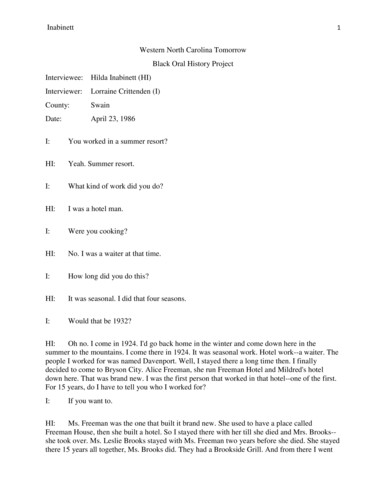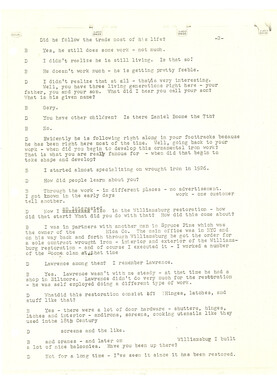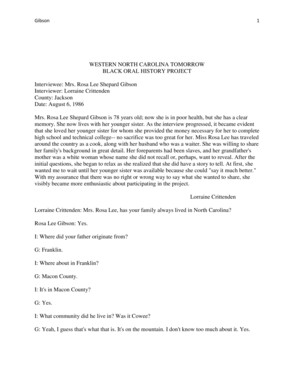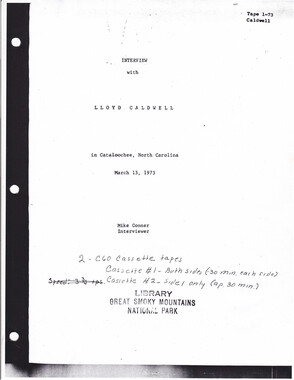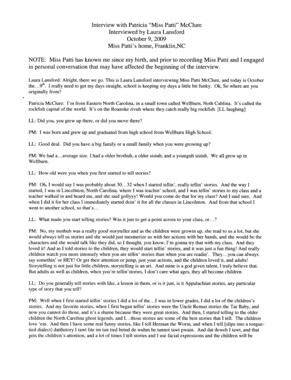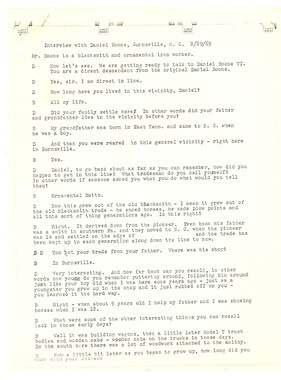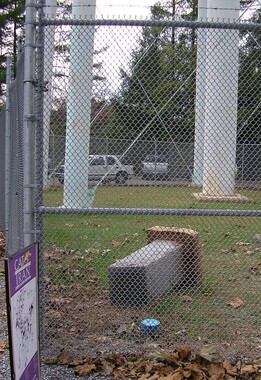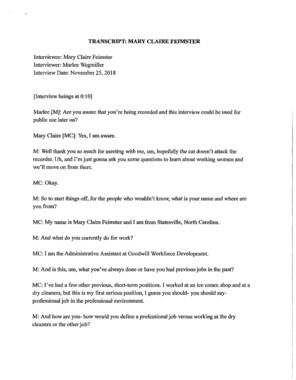Western Carolina University (20)
View all
- Canton Champion Fibre Company (2308)
- Cherokee Traditions (292)
- Civil War in Southern Appalachia (165)
- Craft Revival (1942)
- Great Smoky Mountains - A Park for America (2766)
- Highlights from Western Carolina University (430)
- Horace Kephart (941)
- Journeys Through Jackson (154)
- LGBTQIA+ Archive of Jackson County (85)
- Oral Histories of Western North Carolina (314)
- Picturing Appalachia (6772)
- Stories of Mountain Folk (413)
- Travel Western North Carolina (160)
- Western Carolina University Fine Art Museum Vitreograph Collection (129)
- Western Carolina University Herbarium (92)
- Western Carolina University: Making Memories (708)
- Western Carolina University Publications (2283)
- Western Carolina University Restricted Electronic Theses and Dissertations (146)
- Western North Carolina Regional Maps (71)
- World War II in Southern Appalachia (131)
University of North Carolina Asheville (6)
View all
- Allanstand Cottage Industries (62)
- Appalachian National Park Association (53)
- Bennett, Kelly, 1890-1974 (1388)
- Berry, Walter (76)
- Brasstown Carvers (40)
- Carver, George Washington, 1864?-1943 (26)
- Cathey, Joseph, 1803-1874 (1)
- Champion Fibre Company (233)
- Champion Paper and Fibre Company (297)
- Cherokee Indian Fair Association (16)
- Cherokee Language Program (22)
- Crowe, Amanda (40)
- Edmonston, Thomas Benton, 1842-1907 (7)
- Ensley, A. L. (Abraham Lincoln), 1865-1948 (275)
- Fromer, Irving Rhodes, 1913-1994 (70)
- George Butz (BFS 1907) (46)
- Goodrich, Frances Louisa (120)
- Grant, George Alexander, 1891-1964 (96)
- Heard, Marian Gladys (60)
- Kephart, Calvin, 1883-1969 (15)
- Kephart, Horace, 1862-1931 (313)
- Kephart, Laura, 1862-1954 (39)
- Laney, Gideon Thomas, 1889-1976 (439)
- Masa, George, 1881-1933 (61)
- McElhinney, William Julian, 1896-1953 (44)
- Niggli, Josephina, 1910-1983 (10)
- North Carolina Park Commission (105)
- Osborne, Kezia Stradley (9)
- Owens, Samuel Robert, 1918-1995 (11)
- Penland Weavers and Potters (36)
- Roberts, Vivienne (15)
- Roth, Albert, 1890-1974 (142)
- Schenck, Carl Alwin, 1868-1955 (1)
- Sherrill's Photography Studio (2565)
- Southern Highland Handicraft Guild (127)
- Southern Highlanders, Inc. (71)
- Stalcup, Jesse Bryson (46)
- Stearns, I. K. (213)
- Thompson, James Edward, 1880-1976 (226)
- United States. Indian Arts and Crafts Board (130)
- USFS (683)
- Vance, Zebulon Baird, 1830-1894 (1)
- Weaver, Zebulon, 1872-1948 (58)
- Western Carolina College (230)
- Western Carolina Teachers College (282)
- Western Carolina University (1794)
- Western Carolina University. Mountain Heritage Center (18)
- Whitman, Walt, 1819-1892 (10)
- Wilburn, Hiram Coleman, 1880-1967 (73)
- Williams, Isadora (3)
- Cain, Doreyl Ammons (0)
- Crittenden, Lorraine (0)
- Rhodes, Judy (0)
- Smith, Edward Clark (0)
- Appalachian Region, Southern (2569)
- Asheville (N.C.) (1923)
- Avery County (N.C.) (26)
- Blount County (Tenn.) (161)
- Buncombe County (N.C.) (1672)
- Cherokee County (N.C.) (283)
- Clay County (N.C.) (555)
- Graham County (N.C.) (233)
- Great Smoky Mountains National Park (N.C. and Tenn.) (519)
- Haywood County (N.C.) (3524)
- Henderson County (N.C.) (70)
- Jackson County (N.C.) (4694)
- Knox County (Tenn.) (25)
- Knoxville (Tenn.) (12)
- Lake Santeetlah (N.C.) (10)
- Macon County (N.C.) (420)
- Madison County (N.C.) (212)
- McDowell County (N.C.) (39)
- Mitchell County (N.C.) (132)
- Polk County (N.C.) (35)
- Qualla Boundary (981)
- Rutherford County (N.C.) (76)
- Swain County (N.C.) (2115)
- Transylvania County (N.C.) (270)
- Watauga County (N.C.) (12)
- Waynesville (N.C.) (84)
- Yancey County (N.C.) (72)
- Aerial Photographs (3)
- Aerial Views (60)
- Albums (books) (4)
- Articles (1)
- Artifacts (object Genre) (228)
- Bibliographies (1)
- Biography (general Genre) (2)
- Cards (information Artifacts) (38)
- Clippings (information Artifacts) (191)
- Crafts (art Genres) (622)
- Depictions (visual Works) (21)
- Design Drawings (1)
- Drawings (visual Works) (184)
- Envelopes (73)
- Facsimiles (reproductions) (1)
- Fiction (general Genre) (4)
- Financial Records (12)
- Fliers (printed Matter) (67)
- Glass Plate Negatives (381)
- Guidebooks (2)
- Internegatives (10)
- Interviews (815)
- Land Surveys (102)
- Letters (correspondence) (1013)
- Manuscripts (documents) (618)
- Maps (documents) (177)
- Memorandums (25)
- Minutes (administrative Records) (59)
- Negatives (photographs) (5835)
- Newsletters (1285)
- Newspapers (2)
- Occupation Currency (1)
- Paintings (visual Works) (1)
- Pen And Ink Drawings (1)
- Periodicals (193)
- Personal Narratives (10)
- Photographs (12976)
- Plans (maps) (1)
- Poetry (6)
- Portraits (4533)
- Postcards (329)
- Programs (documents) (151)
- Publications (documents) (2236)
- Questionnaires (65)
- Scrapbooks (282)
- Sheet Music (2)
- Slides (photographs) (402)
- Songs (musical Compositions) (2)
- Sound Recordings (796)
- Specimens (92)
- Speeches (documents) (15)
- Tintypes (photographs) (8)
- Transcripts (322)
- Video Recordings (physical Artifacts) (23)
- Vitreographs (129)
- Text Messages (0)
- A.L. Ensley Collection (275)
- Appalachian Industrial School Records (7)
- Appalachian National Park Association Records (336)
- Axley-Meroney Collection (2)
- Bayard Wootten Photograph Collection (20)
- Bethel Rural Community Organization Collection (7)
- Blumer Collection (5)
- C.W. Slagle Collection (20)
- Canton Area Historical Museum (2110)
- Carlos C. Campbell Collection (282)
- Cataloochee History Project (64)
- Cherokee Studies Collection (4)
- Daisy Dame Photograph Album (5)
- Daniel Boone VI Collection (1)
- Doris Ulmann Photograph Collection (112)
- Elizabeth H. Lasley Collection (1)
- Elizabeth Woolworth Szold Fleharty Collection (4)
- Frank Fry Collection (95)
- George Masa Collection (173)
- Gideon Laney Collection (452)
- Hazel Scarborough Collection (2)
- Hiram C. Wilburn Papers (28)
- Historic Photographs Collection (236)
- Horace Kephart Collection (861)
- Humbard Collection (33)
- Hunter and Weaver Families Collection (1)
- I. D. Blumenthal Collection (4)
- Isadora Williams Collection (4)
- Jesse Bryson Stalcup Collection (47)
- Jim Thompson Collection (224)
- John B. Battle Collection (7)
- John C. Campbell Folk School Records (80)
- John Parris Collection (6)
- Judaculla Rock project (2)
- Kelly Bennett Collection (1407)
- Love Family Papers (11)
- Major Wiley Parris Civil War Letters (3)
- Map Collection (12)
- McFee-Misemer Civil War Letters (34)
- Mountain Heritage Center Collection (4)
- Norburn - Robertson - Thomson Families Collection (44)
- Pauline Hood Collection (7)
- Pre-Guild Collection (2)
- Qualla Arts and Crafts Mutual Collection (12)
- R.A. Romanes Collection (681)
- Rosser H. Taylor Collection (1)
- Samuel Robert Owens Collection (94)
- Sara Madison Collection (144)
- Sherrill Studio Photo Collection (2558)
- Smoky Mountains Hiking Club Collection (616)
- Stories of Mountain Folk - Radio Programs (374)
- The Reporter, Western Carolina University (510)
- Venoy and Elizabeth Reed Collection (16)
- WCU Gender and Sexuality Oral History Project (32)
- WCU Mountain Heritage Center Oral Histories (25)
- WCU Oral History Collection - Mountain People, Mountain Lives (71)
- WCU Students Newspapers Collection (1744)
- Western North Carolina Tomorrow Black Oral History Project (69)
- William Williams Stringfield Collection (2)
- Zebulon Weaver Collection (109)
- African Americans (390)
- Appalachian Trail (35)
- Artisans (521)
- Cherokee art (84)
- Cherokee artists -- North Carolina (10)
- Cherokee language (21)
- Cherokee pottery (101)
- Cherokee women (208)
- Church buildings (170)
- Civilian Conservation Corps (U.S.) (110)
- College student newspapers and periodicals (1830)
- Dams (107)
- Dance (1023)
- Education (222)
- Floods (61)
- Folk music (1015)
- Forced removal, 1813-1903 (2)
- Forest conservation (220)
- Forests and forestry (1184)
- Gender nonconformity (4)
- Great Smoky Mountains National Park (N.C. and Tenn.) (181)
- Hunting (38)
- Landscape photography (25)
- Logging (118)
- Maps (83)
- Mines and mineral resources (8)
- North Carolina -- Maps (18)
- Paper industry (38)
- Postcards (255)
- Pottery (135)
- Railroad trains (71)
- Rural electrification -- North Carolina, Western (3)
- School integration -- Southern States (2)
- Segregation -- North Carolina, Western (5)
- Slavery (5)
- Sports (452)
- Storytelling (244)
- Waterfalls -- Great Smoky Mountains (N.C. and Tenn.) (66)
- Weaving -- Appalachian Region, Southern (280)
- Wood-carving -- Appalachian Region, Southern (328)
- World War, 1939-1945 (173)
Interview with Hilda Inabinett
Item
Item’s are ‘child’ level descriptions to ‘parent’ objects, (e.g. one page of a whole book).
-
-
Inabinett 1 Western North Carolina Tomorrow Black Oral History Project Interviewee: Hilda Inabinett (HI) Interviewer: Lorraine Crittenden (I) County: Swain Date: April 23, 1986 I: You worked in a summer resort? HI: Yeah. Summer resort. I: What kind of work did you do? HI: I was a hotel man. I: Were you cooking? HI: No. I was a waiter at that time. I: How long did you do this? HI: It was seasonal. I did that four seasons. I: Would that be 1932? HI: Oh no. I come in 1924. I'd go back home in the winter and come down here in the summer to the mountains. I come there in 1924. It was seasonal work. Hotel work--a waiter. The people I worked for was named Davenport. Well, I stayed there a long time then. I finally decided to come to Bryson City. Alice Freeman, she run Freeman Hotel and Mildred's hotel down here. That was brand new. I was the first person that worked in that hotel--one of the first. For 15 years, do I have to tell you who I worked for? I: If you want to. HI: Ms. Freeman was the one that built it brand new. She used to have a place called Freeman House, then she built a hotel. So I stayed there with her till she died and Mrs. Brooks--she took over. Ms. Leslie Brooks stayed with Ms. Freeman two years before she died. She stayed there 15 years all together, Ms. Brooks did. They had a Brookside Grill. And from there I went Inabinett 2 back to the Freeman Hotel. Calhoun's boy so I stayed with Calhoun there for a couple of years. And from there I went to Cherokee. I stayed there 11 seasons with Queens. I was a waiter there too—head waiter until I started cooking. And after I left Queen's I started cooking. I went from there to Parker's Drive-In. I stayed there 12 years. Then I left after that ... that's about all. I: You worked another place after Parker's Drive-In? I thought you retired then. HI: I worked down here at Dent's Cafe, you know. I: Did you cook down there too? HI: Woody's the man that got it. In fact, it had two or three managers, but I can't remember none of their names. I: Let's go back a little back farther. How far can you trace your family tree? HI: Not too far. I left home at a young age. I wasn't but about 17 years old when I left. I: Was that when you came to Horseshoe? HI: I was about 19 when I came to Horseshoe. Back beyond that I can't go very far back because I didn't know--didn't know too many people back then. I: You didn't know your grandparents at all? HI: No. I: Did your mother or father talk about their parents to you? HI: Yeah, they used to but I can't remember what their names was. I really can't. I: As far back as you can remember starts with your father? HI: Yeah. I: And only the two children? HI: And the children. I: When did you marry? Inabinett 3 HI: 1933. It will be 53 years this year. October 26, 1933. I: What historic events do you remember like World War I, Korea? HI: Yeah, I remember World War I. I: What do you remember? HI: I was just a youngster. I remember I wanted to go. I was just a young man in my teens. I wanted to go to war. That's about all I can remember. The boys going and coming back, you know. Lots of people I remember going to that war and coming back. I: Did they stay in Bryson when they came back? HI: Not in Bryson, no I wasn’t in Bryson City then. I: You were in South Carolina? HI: That was World War I. In World War II, I was in Bryson City. I: Were you ever in the armed forces? HI: No. I was too old. About two weeks I would have come eligible to stay or come back home so I told them I would just come back home. I stayed at Fort Bragg for a weekend. I: You weren't as excited about being a soldier during the Second World War? HI: No, I wasn't as excited about that. I didn't like it. I: So did you come back here after you left Fort Bragg. HI: I come right back home. Bryson city. In fact, they made me a sergeant when I first left Bryson city. They give me a bus load of soldiers I had to order boys from Swain County though, yeah, from Swain County on back to Asheville. I was in charge of all those boys and they raised sand all the way down there and back. I: They weren't too anxious to go either were they? HI: They didn't seem to mind it. I wasn't but 37 years old and I was ready to get out at 37. They'd be in charge so I'd just go back home. Inabinett 4 I: Well when you came back home did you go back to work or what? HI: Yeah. I went back to my same job. Brookside Grill in Bryson City. I: You said you were a waiter there? HI: Yeah. I was a waiter. I: Was Aunt Lilie working then? HI: Yeah. She was there with the blacks. I: Does Aunt Lilie's name have two L's or one? HI: One. L-i-1-i-e. She worked for the blacks 47 years you know. Rosemary, she was a domestic, so was I. I: Were times hard then during World War II? What do you remember? HI: Well, lots of people had it hard, but I didn't have it hard. I've had it good all of my life. You see, I always had a job and I never had it hard. Lots of people did. Had it very hard, but I was very lucky. Some way or another I always kept a job. But lots of people had it pretty hard in '28 and '29. It was pretty rough for some people--for lots of people. But I was a pretty lucky man. I: So everybody had a hard time during World War II for the most part. HI: That wasn't World War II ... '29. World War II was in the '30s. '28 and '29 the depression was. When the stock market and everything fell. I: How many people survived? HI: Lots of them that had welfare you know of course and lots of them farmed. They survived the best they could. I: Were there--lots of blacks were on welfare. HI: What do you mean blacks? This is everybody. I was thinking about talking about everybody. I wasn't speaking about blacks, there have never been many blacks in Swain County. The blacks here in Swain County, most of them did domestics. They would hire out to white folks homes. They did pretty good. I guess some of them was on welfare, I don't know. I'm pretty sure they was. They mostly had little jobs you know. It wasn't much--about $3 a week, I think. Inabinett 5 I: What were these jobs other than domestics? HI: That's all. I: What about digging ditches? HI: Oh, they did that construction, you might call it. In fact, they wasn't none of that going on much back in those days, ’28 and ’29. There just wasn't really nothing for them to do, they had things called the WPA. Lots of colored people worked on it. I: Now, what's that? HI: WPA is just a work project. So they didn't have it too hard in this county. They had it pretty good because they all had jobs, all the women, there weren't many men here. The women had jobs--$3. That was pretty good money back in them days. You could go to the store with $3 and get you a car load of stuff. But you can't do that now you know. So they had it pretty good, not you know, I don't think they had to rough. I: What about later on? HI: Huh? I: Later on, after the war? HI: They all had it pretty good you know working steady those that weren't that's why they left Bryson city. I: Why did they leave? HI: For the jobs I guess. I: Did they go north? To war? HI: Yeah, yeah, Ohio, New York. I used to go north too, in the winter for four months. I used to go to Washington, D.C. and Maine. I: What did you do up there? HI: I cooked. I: Did you ever work on the railroad on the train? Inabinett 6 HI: No, huh uh. I didn't work on the train. I worked in Washington, D.C. and Florida, you know. I cooked down there too, in the winter. Just two or three months at a time. I went up there for three seasons. I: Did you notice whether any of the blacks were any better off economically than the others? HI: You mean in Bryson? I: In Bryson. HI: They were all about on the same level I guess. None of them never had a great deal. I: What about education? HI: Not a great deal of education either. The older ones, the ones, the ones that I knew. I: When you were coming up as a boy, did you go to school? HI: Yeah. I: How far did the school go? What grade? HI: Oh, it was a high school. I: That was in South Carolina. HI: Yeah, in South Carolina. I: I know you have always been involved in the church. HI: Yeah, all my life. As far as I can remember. When I was a boy at home, I had to go to church. As far as I can remember. I got attached to that kind of thing and it never has left me. I've been a church goer all my life. I: What are some of the religious practices when you were young growing up that they don't have now? HI: We have about the same thing we had when I was coming up. Church hasn't changed very much. It had just about everything we have now. I: Was Sunday school church and prayer meeting on Sunday night. Inabinett 7 HI: Yeah, we had about two thirds of the day and in the morning, Sunday school and preaching at the night service and sometimes in the afternoon. Just about all day long on Sunday. You didn't work much then on Sunday when I was a boy. They spent that time in church. They'd take me with them to church, you know. I: Was there a special occasion in church that you remember? HI: Oh yeah, we had meetings back then. Camp meetings and all that kind of stuff. Yeah, they still have those camp meetings every year. I go down there to them, sometimes. I: Where, in South Carolina? HI: Yeah. I: Is it different from a revival? HI: Oh yeah, Go and stay a week. Everybody get through farming and everything and go to a camp meeting. Got big tents all through. They're still carrying them on. I: The services are not in the tents? The people stay there? HI: Yeah, if you stay in those camps. (A friend in the room) has been to them with me. He goes a week every year. "Yeah, I was born and raised there. They have a big camp." I: Do you remember any church services that we don't have now? HI: No. They're about the same. They used to have a Methodist Church. That was before my time before I come here. I was born and raised a Methodist. I joined the Baptist Church in 1936 I guess it was. I would have been a Methodist if there had been a Methodist Church here for blacks. I: Do you remember any special social events up here like a wedding or… What do you remember about wakes as you were younger? HI: When they have wakes? If somebody dies, all the community go and spend the night with the one that is dead. Stay all night with the family. They would keep them at the house-wasn't too many undertakers and wasn't too much money back in those days I don't imagine. If you died today you'd be buried tomorrow. Wasn't two or three days or nothing like that because they didn't embalm them you know. See now we treat the family at church. I: Do they still have the practice of bringing food? HI: No, they didn't do that way back yonder, just started that here of lately. I: What about back then? Inabinett 8 HI: They didn't do it back then. Anybody that wanted to take something could, but they didn't make a practice of it like they do now--all this eating stuff--they didn't do that back then. There wasn't that much time, just overnight. They didn't keep 'em for days and days at a time back in them days. I: When you died, you were dead and gone. HI: You were gone. They didn't keep 'em because they didn't embalm lots back then. Wasn't too many undertakers back then. I: What did you do for fun? HI: We just had games like they do now. I: Ball games? HI: Yeah. I: Weren't there black teams? HI: Yeah. I: Did they travel, the black teams? HI: Not too far because every little town had a team. Here in Bryson city we had a team in Bryson. I used to play. I used to be manager for a little while. I: I remember horseshoe. HI: They played horseshoes. I used to play horseshoes in my yard all the time. But they still play 'em. I: Other than ballgames, what else? HI: We used to have lots of parties back then when we were young. They don't do that now for some reason or another. I don't know why. We had parties, dances, stuff. I: At each other's house? HI: Yeah, the Simpson's house, my house, get-togethers. They don't do not many that any more in Swain County. You know there's not many Negroes in Swain County. There's 30 some odd Negroes in Swain County. Inabinett 9 I: I was counting on my fingers and I didn't get 35. HI: When I first came here, there were a good many. I guess 100 or more. I: Ares there any special celebrations besides the church? Weddings or anything like that? HI: No. Weddings? Oh no. I: Well, what did you do when you got married? HI: Just go get some license and get your preacher. [Laughter] I: You mean they didn't serenade the bride? HI: Oh, they did that. They would take the bridegroom and ride him on a rail. I: Make them do what? HI: Ride a rail--you know--a rail they would build a fence with. If you'd leave your wife a little bit, they'd take your wife. When I got married, I was working. I got married in the afternoon and went back to work that night. I came home and I could not find my wife my wife anywhere. They'd come to pick up my wife while I was gone. I saw them ride 'em through town on a rail. Negroes didn't take them through town. They'd take them back in the woods someplace and hide them. I: How long did it take you to find her? HI: Not too long. I come home and she wasn't at home, and I wondered where… I lived in town. I lived at the hotel, I had a room, a quarter, you know. I stayed down there a long time. I came up here on the back road from town. They'd took her over by the cemetery back over that way. There was bunch of them back there raising sand. Just having fun. I laughed and cursed. [Laughter] I: How did the courting go? HI: I went to her house every night, and every afternoon. We had a break every evening and I'd go to Lilia's house, sit on the porch, go for a walk--things like that. I: But it wasn't a real date? You didn't go out at night and all that stuff? Inabinett 10 HI: Oh no. We…back yonder we went to church on Wednesday nights and on Sundays. We used to have our entertainments, you know, we called them entertainments. Sell stuff, you know. Ice cream, whatever. There wasn't much to entertainment. I: When did you get your first car? HI: 1924 T-Model ford. I: Did many black people have cars then. HI: Huh uh. In Bryson City just about two or three have cars. Wasn't many cars back in them days. Not in Swain County. I got my first car in Henderson county. Wasn't many cars in Bryson. I: When people wanted to go someplace or different town, how did they go? HI: Taxi. I: Taxi. How much did that cost you? HI: Not much. Oh, about $3 I guess. You could go to Asheville for $5, and they would stay all night with you. I: The taxi would? HI: Yeah, we used to go to Asheville all the time. Dances and stuff like that, $5. I: Everybody just pitched in. Sometime you didn't have to pay right then. They'd take you on credit. You pay when you can. Gas wasn't but 15 cents a gallon--two gallons for a quarter. I: Did your car use regular gas? HI: Huh uh. I: Unleaded? HI: The direction said to use unleaded, but I use regular. I: Were you considered to be better off, more affluent, when you had a car? Inabinett 11 HI: When I was a youngster? Well, I always had some money. I've had money all my life. You know a little. I wasn't a rich man. I kept a job. Way back in them days during the depression I was making $10 a week. That was big money. [Laughter] I: You were still in the hotel business at that time? HI: Yeah. I made lots of tips you know. My salary was $10. That was big money. Tips was extra. I had it good. I really did. I: What about medical care? HI: I never was sick till here lately. In fact, I haven't been too sick all my life. Lilie has been sick all her life. I: I forgot to ask you when you were born. HI: 1910. I: Here in Bryson City? HI: Yeah, up here. I: When's your birthday? HI: June 20… I know but I can't say it. Anyway, it’s in June. I: Who do you remember being the community leaders? Who were the people looked up to in the community? HI: Well not many of them were leaders ... church people or what? I: Right. HI: Everybody belonged to the church here. I: Did everybody look up to the minister for answers, counseling, things like that? HI: They didn't do that. Our preachers always come in here, you know, from other places. I: When did you get the first minister who stayed here? Inabinett 12 HI: The earliest I remember is Reverend McDowell. Richey is the first one I remember at the Baptist church here. We’ve had several since that. Ritcheys, then Harmon, the Reverend Smith, then McDowell. I: Was there a teacher in authority? Was she highly respected in the community? HI: Oh yeah. Everybody thought very well of the teachers we have had here. They all stayed at my house just about. I was glad to have them because I was gone all the time you know on the job. I: Can you think of any projects that black people contributed to in Swain County, like building a hospital or anything like that, something that they really contributed to? HI: I don't know. I knew when they built the first hospital in Swain County, whether blacks contributed more than I did, wasn't much. When it was first started, everybody contributed a little. I: Needing money or working? HI: The money. None of them worked that I know of. I was one of the first orderlies that worked there. I: I know you were an orderly. HI: I did that seasonally in the winter when I come home after Cherokee. I worked two winters at least. I: Who built the church at home? HI: I guess we all did. I: So black people built the church. What contributes to your good health and old age? HI: I don't know. [Laughter] Well I wasn't too bad of a fellow. [Laughter] I really wasn't. I took care of myself, you know. I: His own cooking, his garden. Hi: Yeah, things like that. I: You forgot to tell us about the motel down there with the diner. HI: Oh, this used to be my eating place right here, my cafe. My big house was my motel over there. I don't have that now. Inabinett 13 I: I thought there was one down below that too. HI: Oh yeah. They tore that one down. I: Who mostly used the motels? HI: People that's coming in. I: Construction workers. HI: I have construction workers to live there too. People passing through and stop. The sheriff department and police department be coming through most every night wanting a place to stay. There wasn't integration back in them days, you know. I: Do you remember when Dent's was integrated? HI: I remember being a child. I: Do you remember what year it was? HI: No, I don't, not what year it was. Dent's now have us go in the back--has us a room back there. I: Jim Sneed's place? HI: I don't know, several years. I: What made you close it? HI: I just couldn't do it. See, I tried to run it myself and work too. I just couldn't do it all. In fact, there wasn't enough business for two, you know. There wasn't enough business to support it. Everybody left this country. I: Do you know of any other black history projects like this? Have you been involved in any? HI: What do you mean? I: Has anyone else come around asking you the history? Inabinett 14 HI: Oh, no, no, no. I don't know a great deal about black history. People I know were farmers and horse traders-things like that. Never had a whole lot of excitement. I: Did they mostly work? HI: Just mostly work and go to church. I: Is there any other event that you remember? HI: There isn't much I can tell you. I stayed in Cherokee 23 or 24 years. I: What's the worst thing that ever happened to you in Bryson city? HI: The worst thing was when I fell and broke my hip last summer. I: Was it in the summertime? HI: July. I can't say words, but I want to. I asked the doctors about that. He said it was that anesthesia. It takes a long time for some people. I was worse that I am now but it’s getting better. I: Between the white and black community nothing had happened when you were there? HI: It was bad. [Laughter] I've had it pretty nice you know. In fact, all the Negroes have, I guess. I don't think there was any difficulties, really. I: What about medical care? HI: What do you mean? I: Did the doctors come to black people's house? HI: Oh yeah, back then doctors come to your house. I: Who was the doctor then? HI: Dr. Bacon, Dr. Bennett, Dr. Weiter. Those are all the doctors that we had at that time. I: What if you had to have surgery, though? Inabinett 15 HI: Went to Sylva or Asheville or Franklin. I: To a doctor of hospital? HI: Hospital. See, they didn't really have a hospital. They had a place called a hospital. It was a house. They called it a hospital, but it wasn't. But no operating or nothing like that went on there. Had to take them out of town to Sylva or Franklin or Asheville. I: Well, thank you so much Uncle Hilda. I hope I didn't tire you out. HI: No, you didn't.
Object
Object’s are ‘parent’ level descriptions to ‘children’ items, (e.g. a book with pages).
-
Hilda Inabinett is interviewed by Lorraine Crittenden on April 23, 1986 as a part of the Western North Carolina Tomorrow Black Oral History Project. Inabinett discusses his first jobs, being married over 50 years so far, wanting to serve in WWI, being in WWII, the lack of black population in Swain County, eventually working in D.C. and Florida, highest education completed, church life, and more.
-
